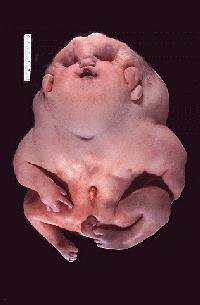Dissociative Fugue: “Lost”

As defined by DSM-IV, Dissociative fugue formerly called psychogenic fugue is a rare condition characterized by sudden, unexpected travel away from home or one’s customary place of work, with inability to recall one’s past, confusion about personal identity, or the assumption of a new identity, or significant distress or impairment. It is one of the least understood and yet clinically one of the most fascinating disorders in Mental Health.
The word fugue comes from the Latin word for “flight.” The travels associated with the condition can last for a few hours
or as long as several months. People experiencing dissociative fugue may be easily able to blend in wherever they end up. Initially, a person experiencing the condition may appear completely normal but with time however, with time the victim realizes something is wrong. After recovery from fugue, previous memories usually return intact, but there is complete amnesia for the fugue episode.
Commonly, individuals who experience the onset of dissociative fugue are found wandering in a dazed or confused state, unable to recall their own identity or recognize their own relatives or daily surroundings.
Often, the fugue state remains undiagnosed until the individual has emerged from it and can recall their real identity. It is estimated to affect just 0.2% of the population, nearly all of them adults.
Dissociative fugue must not be confused with Dissociative Identity Disorder, Wanderlust and Malingering.
Causes of Dissociative Fugue:
- Severe stress associated with traumatic events like war, abuse, accidents, disasters or extreme violence.
- Major life stresses (abandonment, death of a loved one, financial troubles)
- Tremendous internal conflict (turmoil over guilt-ridden impulses, apparently unresolvable interpersonal difficulties, criminal behaviors).
The frequency of dissociative fugue tends to increase during stressful or traumatic periods, such as during wartime or after a natural disaster.
Signs and symptoms:
- Sudden and unplanned travel away from home
- Inability to recall past events or important information from the person’s life
- Confusion or loss of memory about his or her identity, possibly assuming a new identity to make up for the loss
- Patient may present alert and oriented only to self.
- Reasoning and judgment are lacking, and insight is poor.
- An increased finding of violent or homicidal ideation is present, but suicidal ideation is lacking.
Treatment:
Patients with dissociative fugue often recover spontaneously. However treatment involves:
- Psychotherapy with additional psychopharmacology and hypnosis you can learn more about at the link, in order to allow integration of feelings, anxieties associated with the fugue, and recovery techniques
- Medication and cognitive therapies in combination
In th Book “Mad Travelers”:
“Mad Travelers” is the title of a book by Dr. Ian Hacking. The incidents described in his book began in the 1880’s in France then spread to Germany, Italy and Russia. Those events are accepted as the first recognized cases of Dissociative Fugue.
Real life story of Dissociative Fugue:
Jeffrey Alan Ingram, 40, was diagnosed in Denver with dissociative fugue, a type of amnesia.
When Jeff Ingram realized he did not belong in Denver he made public appeals on TV programs for anyone who might know his identity. His fiance’s brother saw him and called her. 2 Denver police detectives accompanied him on a flight back to Olympia, Washington to be reunited with Penny. He had previous episodes in 1995, disappearing for 9 months, ending up in a Seattle hospital. This time (September, 06) he started a trip to Alberta, Canada to visit a friend dying of cancer.
He had awoken in Denver with $8 and no memory of how he got there or who he was. He wandered the streets until he was picked up and placed in a hospital for testing. His memories of the former life are all missing. His car, a greenish-blue colored Neon, is still missing. The ability to cook is gone as well as his driving skills.
Experts insist the stress of dealing with a friend’s pending death caused the fugue episode.
Read more @ http://www.msnbc.msn.com/id/15373503/ns/us_news-life/




